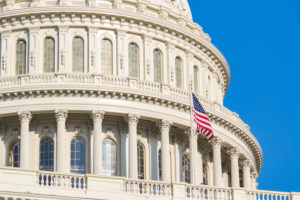
A researcher warns that waivers in business contracts could harm plaintiffs’ power to sue.
Class actions have frustrated many American businesses for years. These lawsuits enable individual plaintiffs to come together and fight jointly against larger, wealthier enterprises, sometimes imposing large financial burdens on the defendant firms. For this reason, many businesses favor circumventing class actions and moving toward arbitration—a more predictable and generally less costly way of resolving disputes.
Brian T. Fitzpatrick of Vanderbilt University argues that recent U.S. Supreme Court decisions have weakened plaintiffs’ ability to pursue class actions by validating arbitration agreements that make consumers, employees, and shareholders waive their class-action rights. Believing in class actions as a necessary method of combatting business abuses, Fitzpatrick calls for two measures to protect plaintiffs’ rights: to nullify some Supreme Court decisions or amend the Federal Arbitration Act to preclude class-action waivers, and for the government to “deter [businesses’] wrongdoing” more aggressively.
According to Fitzpatrick, the Supreme Court recently has issued several decisions that will empower some business organizations to eliminate “virtually all class actions” through pre-dispute arbitration agreements.
Fitzpatrick points to the 2013 case of American Express Co. v. Italian Colors Restaurant as an example. The plaintiffs in that case pursued an antitrust class action under the Sherman Act, seeking to invalidate arbitration agreements that included class-action waiver clauses as part of credit card agreements. The Supreme Court rejected the plaintiffs’ claim, holding that the Federal Arbitration Act provides a legal basis for class-action waivers in such cases.
The Supreme Court also rejected arguments challenging the validity of class-action waivers on the basis of state law in the 2009 case AT&T Mobility v. Concepcion. In this case the plaintiffs argued that arbitration agreements prohibiting class actions are invalid under California law because they are unconscionable. The Supreme Court disagreed, however, finding that the Federal Arbitration Act, which provides authority for such clauses, preempts California’s law.
In light of these two recent Supreme Court decisions, Fitzpatrick expresses concern about the future of class actions. He argues that businesses can make their counterparts “agree to pre-dispute contractual terms” with little resistance now. The prospective plaintiffs in a class-action lawsuit—primarily consumers, employers, and shareholders—all have transactional or contractual relationships, or both, with the very businesses they might sue. This would put businesses in a position to demand that virtually all of their prospective plaintiffs give up their class-action rights against them.
Furthermore, Fitzpatrick claims that almost nothing currently prevents business organizations from abusing pre-dispute arbitration clauses by applying them broadly to any legal issue they desire. His research indicates that recent federal and state court decisions have held that most legal issues can be subjected to arbitration, meaning that businesses can enforce pre-dispute arbitration agreements lawfully on almost all legal issues.
Fitzpatrick argues that a solution might emerge if the federal government authorized private attorneys to bring class-action lawsuits independently of the arbitration agreement created by the plaintiff-company relationship. Even though the success of such public-private partnerships is hard to predict, Fitzpatrick believes that private attorneys general “cannot be captured” by business sectors “in the same way [as] public attorneys general sometimes can be.”
Yet even as Fitzpatrick suggests these potential measures, he argues that they might be too weak for the government to prevent class actions from being eliminated. He is not hopeful about either proposal, due to the business industry’s outsized political influence, and is still concerned that “overwhelmingly” strong economic incentives will drive businesses to continue to take full advantage of class-action waivers that remain embedded in pre-dispute arbitration agreements.



